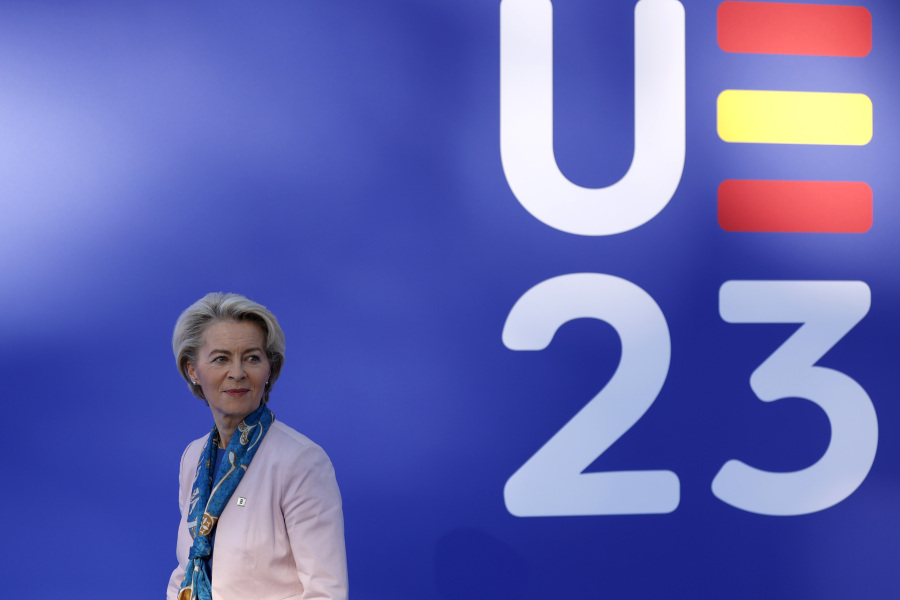GRANADA, Spain (AP) — A day after pledging Ukrainian President Volodymyr Zelenskyy their unwavering support, the European Union on Friday came face to face with one of its worst political headaches on a key commitment — how and when to welcome destitute and battered Ukraine into the bloc.
And immediately, a rift became evident: between those who want to draw Kyiv and other aspiring nations in as quickly as possible, and others that want the bloc to bide its time, setting up difficult talks on an issue that requires unanimity among the 27 member states.
Most EU nations have said since the February 2022 start of the war that they would work steadfastly on a “lasting unity” with Ukraine that would eventually translate into Kyiv’s membership in the wealthy bloc. Now, Hungarian President Viktor Orbán, ever the recalcitrant voice at summits, insisted the whole idea would have to be rethought from scratch.
“We have never done an enlargement to the country which is in a war. And we don’t know where are the effective borders, how many people are living there,” Orbán said as he arrived at the EU summit in Granada. “Sorry, it’s painful to get these countries in the EU.”
Leaders will have to decide whether to officially open talks with Ukraine in December but Orbán said the bloc was still unprepared to take such momentous decisions.
Orbán insisted the budgetary consequences had not yet been fully worked out, in addition to the impact of Ukraine’s massive agricultural production on the fate of the other nations with large farm sectors. “Are you ready for that? Are the French peasants ready for that? So many such questions.”
Last month, Hungary, Poland and Slovakia banned Ukrainian grain and other food products from their markets, saying the imports were dragging down prices for local producers. Ukraine has filed a complaint at the World Trade Organization in response.
EU Council President Charles Michel mentioned 2030 as a membership target to focus minds Friday, making it clear some parts of the EU are with Ukraine to accelerate the process, while others like Orbán want to hit the brake.
Prime Minister Kaja Kallas emphasized the advantages for Estonia from joining the bloc in 2004, making its way up from a relatively poor nation to one that is near the EU average of GDP in less than two decades.
“We would all benefit from enlargement,” Kallas said.
EU Commission President Ursula von der Leyen insisted that the EU’s near-seamless single market for business and trade was its greatest asset, and its expansion would eventually benefit all involved. “The enlargement of the single market is always a huge added value for all of us,” she said.
But von der Leyen has stressed that “accession is merit-based.” She says the progress these countries make in aligning their laws with EU rules and standards should dictate the pace of membership, rather than some arbitrary deadline. The bureaucratic pace of aligning with thousands of EU rules can easily take a decade or more.
And just as aspiring members must push through reforms, so must the EU refashion itself on a larger scale. That goes from reassigning funds, turning current beneficiaries into contributors to help poorer new members, and streamline decision-making to reduce the number of decisions requiring unanimity.
That has already proven difficult enough for the current members, especially with decades-old rules still on the books that were originally designed for a dozen closely knit nations.
So the EU challenge now is to make sure the necessary reforms will be in place when the aspiring members are ready to join.
“If the countries fulfill all the criteria, I think it’s it’s wrong to say to them that, ‘oh, but we are not ready now’,” said Kallas. “So we definitely have to do our homework on our side.”



